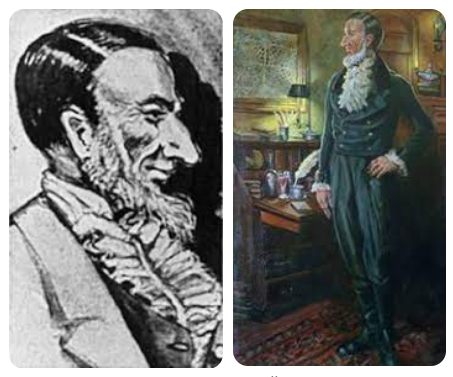The main artery running from the city in a northwesterly direction was Woodward Avenue, named after Judge Augustus B. Woodward. In 1909, one mile of Woodward was paved, becoming the first paved road in America. As Detroit’s population grew after WWII, the northern suburbs that ringed Woodward thrived
Judge Augustus B. Woodward was an American judge and one of the key figures in the early history of Michigan. He was born in 1774 in Virginia and died in 1827 in Detroit, Michigan.
Woodward was a well-educated man who studied law and was admitted to the bar in Virginia. He became a successful lawyer and was appointed as a judge in the Virginia General Court. In 1805, he was appointed to the Supreme Court of the Michigan Territory, where he served as the territory’s chief justice.
As a judge, Woodward was known for his intelligence, integrity, and commitment to justice. He was also known for his strong opinions and his willingness to take unpopular positions in cases that came before him. Despite this, he was respected by many of his contemporaries for his impartiality and his commitment to the rule of law.
In 1805, the newly formed Michigan Territory was in need of a capital city, and Woodward was tasked with creating a plan for the city’s design. He envisioned a grand city with a radial street plan and a central square, which he called the Grand Circus. His design was influential in shaping the early development of Detroit, and many of the streets and landmarks that he envisioned are still present in the city today.
In addition to his work as a judge, Woodward was also a prominent member of the territorial government. He served as a delegate to the territorial legislature and was a key player in the establishment of Michigan’s first constitution. He was also a strong advocate for the territory’s admission to the Union as a state, and he played a key role in the negotiations that led to Michigan’s admission as the 26th state in 1837.
Despite his many accomplishments, Woodward’s life was not without controversy. He was often at odds with territorial governor William Hull, and the two men engaged in a public feud that ultimately resulted in Woodward’s resignation from the Supreme Court in 1813.
Despite this setback, Woodward remained an influential figure in Michigan throughout his life. He continued to practice law and was involved in a number of important cases, including the famous case of the People v. Le Grande, which established the principle of habeas corpus in Michigan.
Judge Augustus B. Woodward’s legacy is remembered today as one of the key figures in the early history of Michigan. He was a man of great intelligence, integrity, and vision, and his contributions to the development of Detroit and the state of Michigan have left a lasting impact on the region.
In conclusion, Judge Augustus B. Woodward was a remarkable figure in early American history whose contributions to the development of Michigan and the city of Detroit continue to be recognized and celebrated. He was a man of great intelligence, integrity, and vision, and his legacy will continue to be remembered and honored for many years to come.


